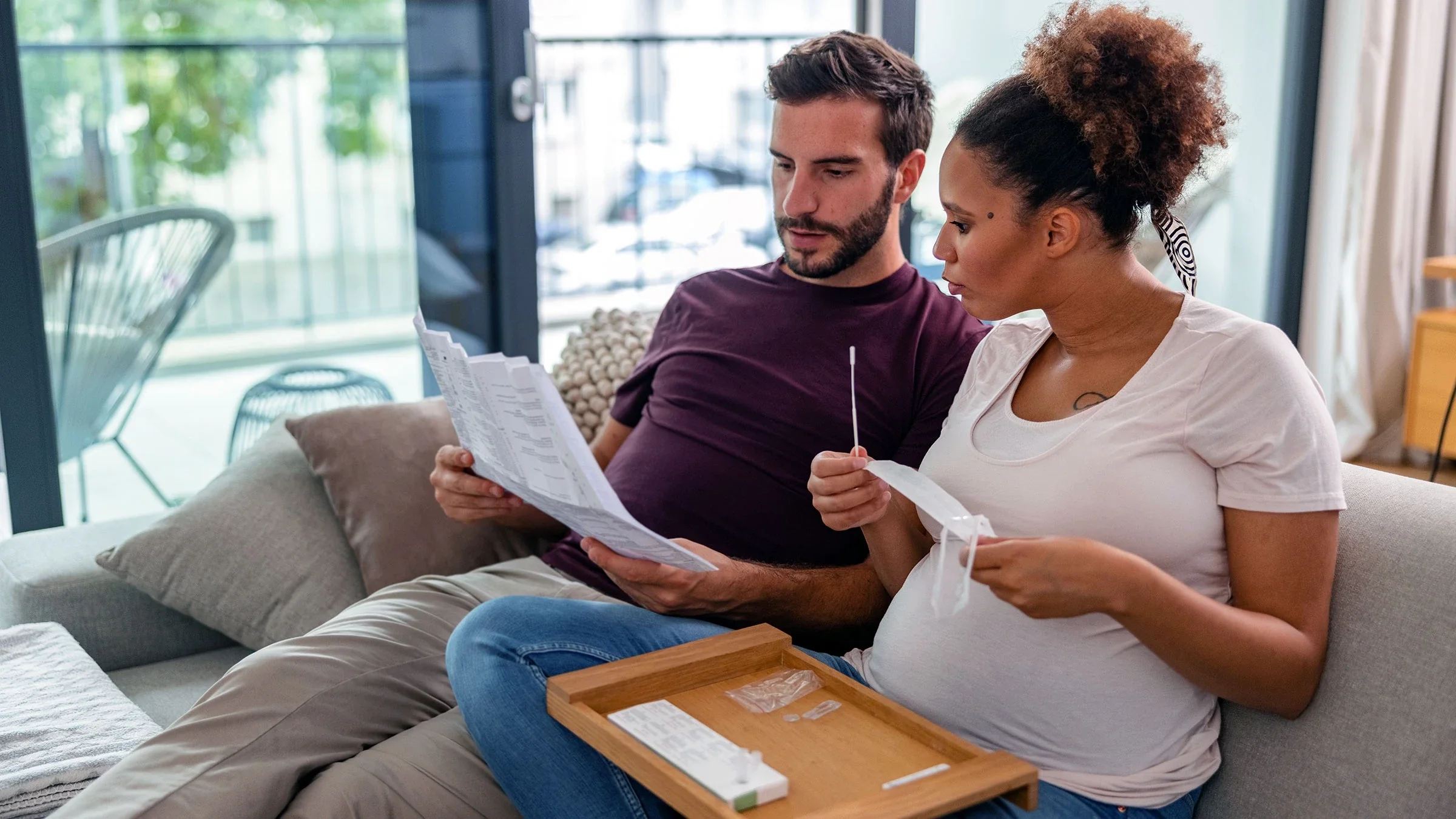Key takeaways:
Expired COVID-19 tests aren’t always accurate. There’s a risk of getting a false negative result when using an expired COVID test.
Many at-home COVID tests have extended expiration dates, which means they can be safely used beyond the date printed on the box.
You can check the FDA database to see if you can use your COVID test past the expiration date printed on the box.
If you’re like most people, you’ve filled a drawer or cabinet with a supply of at-home COVID-19 tests. As cold and flu season approaches, you may need to reach for those tests more often.
But you might be wondering if it’s OK to use older tests that you picked up months ago.
COVID tests do expire. And expired tests aren’t always accurate. But some at-home COVID tests are safe to use, even after their expiration date.
Here’s how to tell if you should use or toss those old COVID tests.
Do COVID-19 tests expire?
Yes, COVID tests expire.
The expiration date for each batch of COVID tests is printed on the box. If you threw out the outer box, you should still be able to find the expiration date on the wrapping of the individual COVID test. It may be printed or embossed onto the edge of the packaging.
You may be wondering: How does a test expire? Well, it turns out that at-home COVID tests can go bad, just like food and prescription medications.
Most at-home COVID tests are rapid antigen tests. They work by looking for proteins on the surface of the SARS-CoV-2 virus. The chemicals that the tests rely on don’t last forever. Over time, the chemicals break down. And the test doesn’t work without those chemicals.
Do expired COVID tests work?
The short answer is that some COVID tests do work past their expiration date. But the long answer is more complicated.
Not sure when you should get tested? Our experts review when you should test for COVID-19 to get the most accurate results.
Are at-home COVID tests reliable? Yes, here’s how to choose the most accurate rapid COVID test.
Tested positive for COVID? Here’s how to get treatment with Paxlovid.
Chemicals in a COVID test break down over time. Once they start breaking down, a test isn’t able to consistently detect the COVID virus. You might have COVID. But the test might not pick it up, because the chemicals no longer work or don’t work as well as they should. So, you may not be able to trust the results of an expired COVID test.
But it’s not exactly clear how long it takes the chemicals in a COVID test to break down, since COVID tests are a new technology. Manufacturers had to use existing knowledge about these chemicals to make their best prediction about expiration dates.
We spoke with infectious disease expert and GoodRx contributor Dr. Shiv Sudhakar about expiration dates for at-home COVID-19 tests.
“Because these rapid tests were developed quickly by the manufacturers, they didn’t have long-term data on use,” Dr. Sudhakar said. “Many tests have a 4 to 6 month shelf life, which is often arbitrary.”
He said that some manufacturers realized that at-home COVID tests can continue to work properly long after their original expiration dates.
COVID test expiration date extension
More data is becoming available, showing that some tests are good for up to 2 years. That’s much longer than the arbitrary 4-month expiration date listed on the box. As a result, the FDA has extended the expiration date for many at-home COVID tests.
If you have an expired COVID test, here’s what to do:
Go to the FDA’s website for Authorized At-Home OTC COVID-19 Diagnostic Tests and Expiration Dates.
From there, find the brand of your COVID test and check the second column. If your test can be used beyond the expiration date, you’ll see the words “Extended Expiration Date” with a hyperlink.
When you click on that link, you’ll be able to look up your test’s lot number (also printed or embossed on the outer box and individual packing) and its new expiration date.
If your brand has the words “see box label” in the second column, you should follow the expiration date printed on the packaging. This means the FDA hasn’t given that brand an extended expiration date.
Can you use an expired COVID test?
You shouldn’t use COVID tests that are past their extended expiration dates. COVID tests that are older than the extended expiration dates aren’t reliable.
Will an expired COVID test give a false positive result?
It’s not as likely that an expired COVID test would give you a false positive result. This means that your test result is positive even though you don’t have COVID. If the chemicals in the test have broken down because it’s expired, then the chemical reaction in the test won’t actually run. It’s likely to give you a negative — and never a positive — result. A positive result should be assumed to be accurate, even when using an expired test.
Will an expired COVID test give a false negative?
Expired COVID tests may give you a false negative result. That means your test result will be negative even though you have COVID. Why does this happen? Your collected nasal swab may be covered with COVID protein. But if the chemicals in your test are broken down, this will appear as a “negative” result. But that result isn’t real, since the chemical reaction didn’t actually happen.
If you have COVID symptoms, you should be skeptical of a negative test result, advises Sudhakar. “I would recommend using an alternative test that hasn’t expired, or calling your [primary care] provider to get a PCR test done in the lab or clinic,” he said.
How to check the expiration date on your COVID test
You can easily check the expiration date on your COVID test by looking at the packaging. The date will be printed or embossed on the outer box and individual packing, usually near a bar code or lot number.
The expiration date won’t always be clearly labeled using the phrase “expiration date” though. You may see:
“Use By”
“Exp”
An hourglass image
Where can you get more at-home COVID tests?
If all your COVID tests are definitely expired, it’s time to throw them away. You can get at-home COVID tests without a prescription from your local pharmacy.
Your insurance may cover part of the cost of these tests. At-home COVID tests are also an eligible medical expense, which means you can use your health savings account (HSA) or flexible spending account (FSA) to cover any out-of-pocket costs.
Frequently asked questions
Expired COVID test results may not be reliable, even if the control line shows up. The chemicals responsible for an accurate result can break down over time, possibly causing a false negative result.
Expired COVID tests can be thrown away with your regular trash. There are no special instructions for disposing of them. But always check the FDA website to make sure it doesn’t have an extended expiration date first.
Expired COVID test results may not be reliable, even if the control line shows up. The chemicals responsible for an accurate result can break down over time, possibly causing a false negative result.
Expired COVID tests can be thrown away with your regular trash. There are no special instructions for disposing of them. But always check the FDA website to make sure it doesn’t have an extended expiration date first.
The bottom line
At-home COVID-19 tests expire, but their true expiration date may go beyond what’s printed on the test box. Check the FDA’s database to see if your test has an extended expiration date. If your test has an extended expiration date, you can use it until it reaches the new, extended expiration date. If your test is truly expired, it’s best to use a different test. A negative COVID test result isn’t reliable if you used an expired test.

Why trust our experts?


References
Centers for Disease Control and Prevention. (2025). Testing for COVID-19.
Internal Revenue Service. (2021). IRS: Cost of home testing for COVID-19 is eligible medical expense; reimbursable under FSAs, HSAs.
NC Department of Health and Human Services. (n.d.). Check the expiration date for your at-home COVID-19 test.
U.S. Food and Drug Administration. (2025). At-home OTC COVID-19 diagnostic tests.













